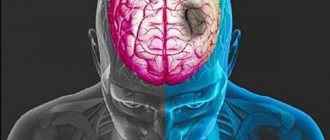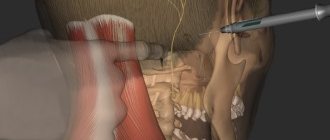Treatment of bulimia nervosa in the early stages of the disease has a favorable prognosis. People usually recover completely. However, if the disease is not treated for a long time, it gives serious complications that greatly complicate the treatment of bulimia, which requires significant time for recovery.
Successful treatment of bulimia at the Preobrazhenie clinic has been carried out for more than 30 years. We are recognized as the best in Russia by the Russian Consumer Rights Protection Fund!
There is primary and secondary bulimia nervosa. The most common is primary. It can first be observed in adolescence, provoked by psychological complexes and hormonal changes during puberty.
Bulimia is a psychopathological syndrome in which a person experiences an increased feeling of hunger and is not satisfied with regular portions of food.
Subsequently, peaks of the disease occur between the ages of twenty-two and twenty-eight years. Secondary bulimia accompanies anorexia nervosa and is one of its symptoms.
Causes of Bulimia Nervosa
According to the observations of psychiatrists, with bulimia nervosa some organic brain dysfunctions are observed, as well as family attitudes, destructive life scenarios and general neuroticism of a person. It is not known for certain whether these changes are the cause or consequence of bulimia, but there is a certain predisposition to this disease in some girls and young women. Prolonged fasting, improper reaction to stress, untreated neurotic disorders, motivational disorders - all this can be the cause of bulimia.
Recent studies by neurophysiologists have shown that bulimia is associated with dysfunction of the hypothalamus. It is in this part of the brain that there are receptors that tell the body about a feeling of fullness. If the functioning of these receptors is disrupted, a person may feel hungry.
The incidence of mental illness among adolescent girls and young women is almost three percent.
This is explained by the immaturity of the individual and lack of confidence in one’s attractiveness. An inferiority complex always accompanies bulimia nervosa and gets worse with each episode of binge eating. The patient understands that she is doing wrong, but is unable to cope with the next attack and begins to blame herself.
Additional reasons
Bulimia can also be caused by low blood sugar. In this case, a person suddenly experiences extreme hunger, but can be satisfied with a portion of food. Therefore, it is extremely important to start searching for the causes with examinations from a therapist, endocrinologist and neurologist.
In addition to physiological sources, bulimia occurs due to mental disorders. In this case, bulimia can be masochistic, obsessive and demonstrative.
It is characteristic that primary bulimia nervosa is extremely rare in children, the elderly and males. This is explained by the fact that in these age groups there are negligibly few cases of negative perception of their physical appearance, and men are by nature more restrained in their external emotionality.
Symptoms
In addition to the inability to control food intake, people with bulimia sometimes use various medications unnecessarily and may drink heavily. Source: Emotional Eating, Binge Eating and Animal Models of Binge-Type Eating Disorders. Robert Turton, Rayane Chami, Janet Treasure2017 Jun;6(2):217-228. doi:10.1007/s13679-017-0265-8.
A doctor at SM-Clinic can identify bulimia nervosa by the following signs:
- redness of the gums and tooth decay;
- dehydration;
- problematic skin;
- frequent throat diseases due to microtraumas that the patient inflicts with his nails when artificially trying to induce vomiting.
- inflammation of the esophagus;
- prostration;
- internal bleeding;
- cramps (due to an imbalance of minerals and salts);
- intestinal disorders;
- enlarged salivary glands;
- disruption of the normal functioning of the liver and kidneys;
- irregular menstrual cycle;
- heart diseases.
What can trigger bulimia
Several reasons can provoke the development of bulimia: somatic, genetic, psychological, socialization disorders.
Somatic causes include: metabolic pathologies, tumors, toxic lesions of the brain (especially the hypothalamus), diabetes mellitus.
Genetic predisposition can provoke the development of physical and mental illnesses that provoke bulimia. The main social causes of bulimia are: society’s attitude towards weight, the desire for supposedly ideal body proportions.
Often the cause of the disorder is the desire to lose weight or maintain weight within certain limits. As a result, a person experiences stress and is afraid of gaining extra pounds. As a result, the risk of developing bulimia increases, and fear for your figure is relieved by eating. In this case, a person can artificially induce vomiting in order not to gain weight from the food he has eaten, or use a large amount of laxative to quickly remove food from the body.
Psychogenic causes include: anxiety, immaturity of personality, depression, low self-esteem, negativism, depression, psychological trauma. The stress that is caused by these conditions is dulled by the most accessible pleasure: food.
How does bulimia manifest?
The first symptom of bulimia is uncontrollable hunger. A person constantly wants to eat and this craving cannot be stopped on his own. At the heart of the disorder itself is always anxiety and fear that something in life is going wrong. When eating food, a person does not feel full. And the mood improves only while eating. When there is no access to food, the patient becomes nervous, extremely irritable, performance decreases, and concentration decreases.
The second sign of the disease is excess weight. True, this symptom does not occur in all patients. If a person experiences a constant fear of gaining extra pounds, a reverse reaction is possible. Then the patient's weight may be average or low. People who are afraid of gaining weight try with all their might to get rid of the calories they eat, using different methods to do this:
- artificial vomiting;
- loosening stools (using stale foods or laxatives);
- excessive exercise.
Any disease goes through several stages. Bulimia is no exception. At the first stage, the patient cannot control the amount of food eaten. Such “breakdowns” occur once or several times a month. If the onset of the disease is not detected in time, bulimia develops into a second, chronic state.
Literature:
- Gurova O.Yu. Metabolic and mental characteristics of obese patients: Author's abstract. dis. ...cand. honey. Sci. M., 2010..
- Fedorova I.I. Clinical, dynamic and psychotherapeutic aspects of eating disorders: Dis. Ph.D. honey. Sci. Tomsk, 2007.
- Dorozhevets A. N. Distortion of the image of the physical self in patients with obesity and anorexia nervosa: dissertation. - Moscow State University, 1986.
- Clinical Guide to Mental Disorders / Ed. D. Barlow. Translation from English, ed. Professor E.G. Eidemiller. — 3rd ed. - St. Petersburg: Peter, 2008. - 912 p. — ISBN 978-5-94723-046-8.
Bulimia at different ages
Today, about 20% of children and adolescents suffer from bulimia, 30% of men, 50% of women.
In children, bulimia often occurs due to nervousness, when the child’s psyche is not yet fully formed and a series of psychological stress follows. In addition, bulimic children are often raised in families where parents also once suffered from bulimia. If in childhood the child’s nutrition is not balanced, the diet and eating patterns are often disrupted, and there are moments in parental education that force him to eat when he is not hungry, then the likelihood of developing bulimia in adolescence sharply increases. When a child often experiences negative nervous shocks (parental divorce, domestic violence, conflicts with peers), his appetite may also increase. However, bulimia should not be confused with the usual recovery of the body after an illness or intense physical/mental stress.
Symptoms of childhood bulimia
- metabolic disorders (diabetes mellitus and others);
- habit of excess food consumption;
- psychological problems;
- mental imbalance.
In adolescents, bulimia can occur for many reasons. Most often, the source of the disease is watching food advertisements, imitating peers or celebrities, or growing up in a codependent family.
Symptoms of teenage bulimia
- constant thoughts about food;
- “cult of food”, when food occupies a central place in the hierarchy of values;
- strong fear of getting fat, low self-esteem.
Bulimia in men and women
- excess weight (obesity);
- depression, apathy, depression;
- strong dependence on food.
- increased anxiety and chronic stress;
- taking medications against the background of a somatic or mental illness.
Men, unlike women, rarely use medications (laxatives) and even less often induce vomiting.
How to save a loved one
As already mentioned, people suffering from overeating do not want to admit their problem, hide it, and thereby harm themselves. The task of relatives and loved ones who notice the symptoms of bulimia is to gently push the patient to the decision to visit a doctor. The following will help you gain trust and explain the need to consult a specialist:
- Study as much information as possible about eating disorders, its manifestations and dangers, in order to fully and clearly convey it to the bulimic.
- The patient may strongly dislike the fact that you have found out his secret; he is capable of showing aggression. You need to be patient and try to build trust.
- You cannot put pressure on a person, and if at the moment he does not want to talk, postpone the conversation until he gathers his strength and wants to listen to you.
- Convince the patient that you do not want to humiliate him, but simply to help.
- Encourage the bulimic to express emotions about their life and condition.
- Focus the conversation on the fact that it is very difficult for any person to admit to addiction, so your interlocutor is great if he can do this.
- Promise the patient that you will not tell anyone about his illness. However, this can be done if he is ready to turn to specialists.
- Convince the bulimic that if he decides to undergo treatment, he will definitely succeed.
When communicating with such a patient, you cannot say that you are nervous about him, putting your feelings above his, manipulate, or behave as if you know everything. Under no circumstances should you say to him the following words: “Can’t you stop eating so much? Eat normally, you’re not fat.” This devalues the problem.
Consequences of bulimia nervosa
Most often, a patient with bulimia carefully hides his disease. They usually do not experience excess weight or excessive emaciation, but the doctor can easily diagnose the disease. Symptoms of bulimia:
- Scars on the fingers (from teeth during artificially induced vomiting);
- Problems with the digestive system;
- Depressive states;
- Swelling of the salivary glands.
To diagnose bulimia, a doctor needs only the combination of these symptoms, but only the patient’s recognition of periods of overeating and purging allows for the greatest effect from the therapy.
What does bulimia suffer from?
As a result of the disease, internal organs (gastrointestinal tract, blood vessels, heart) are affected, metabolism is disrupted, protective functions are depleted, and immunity is reduced. Obesity appears. Bulimia, as an eating disorder, is often associated with another manifestation: anorexia. If anorexia occurs, the patient refuses to eat or eats a minimal amount of food.
Whatever the initial causes of the disease and no matter how the eating behavioral disorder manifests itself, it deeply traumatizes the patient’s psyche, aggravating the already depressed and alarming symptoms. Therefore, the main leitmotif of treatment for both bulimia and anorexia will be the person’s internal psychotherapeutic work on himself.
Signs of the disease
Visually recognizing the symptoms of bulimia at an early stage of its development is almost impossible. The disease is usually detected when the patient experiences noticeable weight loss or the following symptoms:
- reluctance to eat in crowded places (cafes, restaurants, canteens);
- refusal of family holidays and feasts;
- careful study of the components of the product, a picky attitude towards dishes prepared by other people;
- visible changes in diet - either excessive dietary restriction or obvious overeating;
- tendency to solitude after eating, long stays in the restroom;
- frequent complaints of weakness, poor health, low blood pressure, dizziness and even fainting;
- sudden and causeless mood swings or prolonged depression.
Against the backdrop of a lack of nutrients, changes occur in the body that become noticeable to others over time. Dull, split ends begin to fall out over time, and brittle, peeling nails in no way decorate a girl.
The skin with bulimia is also not in the best condition. In addition to the fact that it flakes and turns pale, with sudden weight loss there is a possibility of the formation of unaesthetic hanging folds on the face and other parts of the body.
Changes gradually occur in the internal organs, and in order to return them to their previous performance, a lot of effort must be made. During uncontrolled bouts of overeating, the stomach stretches, so each time it requires more and more food. It is becoming increasingly difficult to stop this process.
However, the mental state of the patient suffers first. It is at this level that an eating disorder begins to progress. All the patient’s thoughts are occupied with maintaining or losing weight, diets, a healthy lifestyle, proper nutrition, etc. Conversations always come down to discussing these problems, and attempts to change the topic cause irritation and dissatisfaction.
Treatment for Bulimia Nervosa
Bulimia can be cured, but the treatment process must be comprehensive and include a person’s internal work on himself. The patient is prescribed psychotherapy sessions, drug treatment with psychotropic and other and general health-improving drugs.
At the Preobrazhenie clinic, treatment for bulimia nervosa is carried out by highly qualified psychotherapists. Inpatient treatment of patients with a confirmed diagnosis of bulimia is recommended, as patients are provided with fractional meals under the supervision of staff to prevent an episode of purging.
The clinic's leading doctors have invaluable experience in treating bulimia nervosa, using well-proven methods and techniques of psychological work in practice. Since patients with bulimia tend to hide their illness, relatives must take the initiative themselves and call the clinic. The earlier the treatment process begins, the more successful it is and the faster the recovery will occur.
Treatment of bulimia nervosa in the clinic
Treatment of bulimia nervosa at the Transfiguration clinic consists of diagnostics of the current condition, mandatory therapeutic assistance to eliminate organ dysfunction, drug treatment and psychotherapy.
Diagnostics
Diagnosis is made based on clinical criteria and conversation with the patient. To identify the presence of complications, additional laboratory and instrumental studies are prescribed.
Diagnostic clinical criteria for bulimia nervosa include recurrent bouts of overeating, accompanied by loss of control over the amount of food consumed and inadequate compensatory behavior, on average once a week, for more than 3 months. Self-esteem directly depends on body weight.
Life after illness
Katya is already an adult, a thirty-year-old woman. She overcame bulimia. For three years, her life consisted of overeating and exhausting workouts. At some point, she realized that it shouldn’t be this way and conquered her problem.
In reality, everything was much more complicated. Sports have always been present in Katya’s life - two workouts a week to keep her muscles toned. Against the backdrop of dysfunctional family relationships, uncontrollable bouts of overeating began to appear. “It’s okay, you just need to work out more,” the girl reasoned.
The amount of food eaten gradually increased. In one sitting she could destroy:
- stick of sausage;
- packaging of mayonnaise;
- half a loaf of bread;
- a pan of fried potatoes or a pot of pasta;
- several yoghurts with a bun.
Sometimes she would simply buy a huge cake from the store and stuff it into herself. It sounds scary, but it looked even worse. After that, she did not run to the toilet to induce vomiting or drink laxatives. She chose a different method - she went to the gym and worked out on exercise machines until exhaustion. Every day for 3 hours, sometimes even twice a day.
She even managed to lose weight; all her friends never tired of admiring her appearance, not knowing what was going on in her soul. And Katya lived between breakdowns and training. On one of those days, similar to each other, like twins, she realized that there was a problem and something needed to be done about it. This was the first and main step towards victory.
Next was the study of her disorder: she talked on forums, read blogs and articles, tried to control her appetite on her own, but this did not bring the desired result. The only thing that saved me was going to the clinic. Katya underwent a course of psychotherapy, switched to intuitive eating, and learned to control her emotions, including her appetite.
She still exercises, but now it is maintenance training 1-2 times a week. Katya knows that she was lucky and she overcame bulimia quite quickly, and she is trying to forget those three years like a bad dream.










